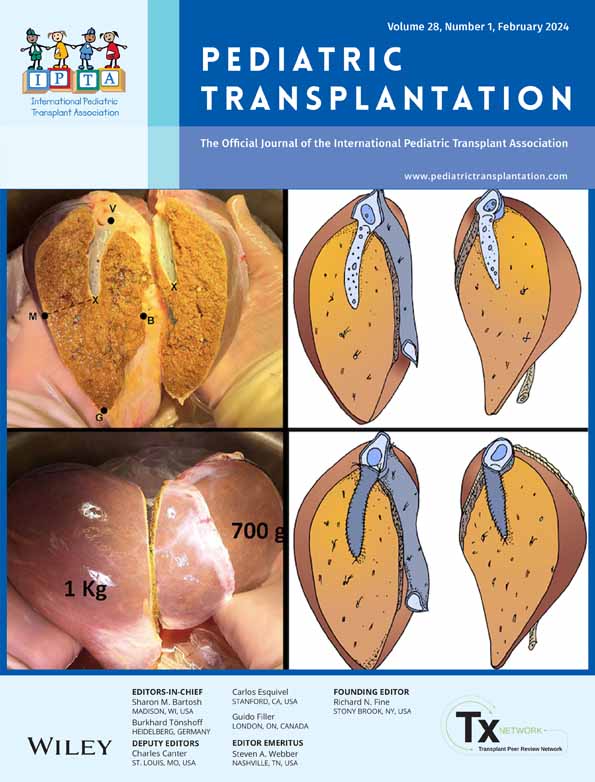Adjustment disorder and its risk factors during the solid organ pre-transplant period for children: A retrospective analysis of the last 10 years
Abstract
Background
Adjustment disorder (AD) in individuals suffering from end-stage organ failure can negatively impact treatment adherence and overall quality of life. Previous research focusing on adults has suggested that AD might serve as a precursor to major mental disorders. However, although it is frequently used as a diagnosis in consultation-liaison psychiatry, our understanding of AD in pediatric transplant candidates remains limited. Therefore, the objective of this study is to assess AD and identify its associated risk factors among children who are candidates for heart, kidney, and liver transplantation.
Methods
Data were collected retrospectively from a cohort of 155 children, aged between 6 months and 18 years (mean age 9.4), who had undergone consultations for child and adolescent psychiatry at a hospital with a transplant center within the past 10 years.
Results
The predominant diagnosis among children assessed during the pre-transplant period was AD (20%), with the subtype “with depressed mood” being the most commonly observed (35.5%). Organ type and length of hospital stay were identified as significant independent predictors of AD. Being a heart transplant candidate was determined as the strongest predictor of AD among children who underwent consultations with child and adolescent psychiatry within the population of transplant candidates.
Conclusions
The study found that AD was the most common diagnosis among transplant candidates who underwent psychiatric consultations. Additionally, the study identified the length of hospital stay and the type of organ needed as independent predictors of AD. Screening for AD by considering risk factors may provide an opportunity for early intervention before the occurrence of major mental disorders in transplant candidates.
CONFLICT OF INTEREST STATEMENT
The authors of this manuscript have no conflicts of interest to disclose.
Open Research
DATA AVAILABILITY STATEMENT
The supporting data and findings of this study are available from the corresponding author upon reasonable request.




